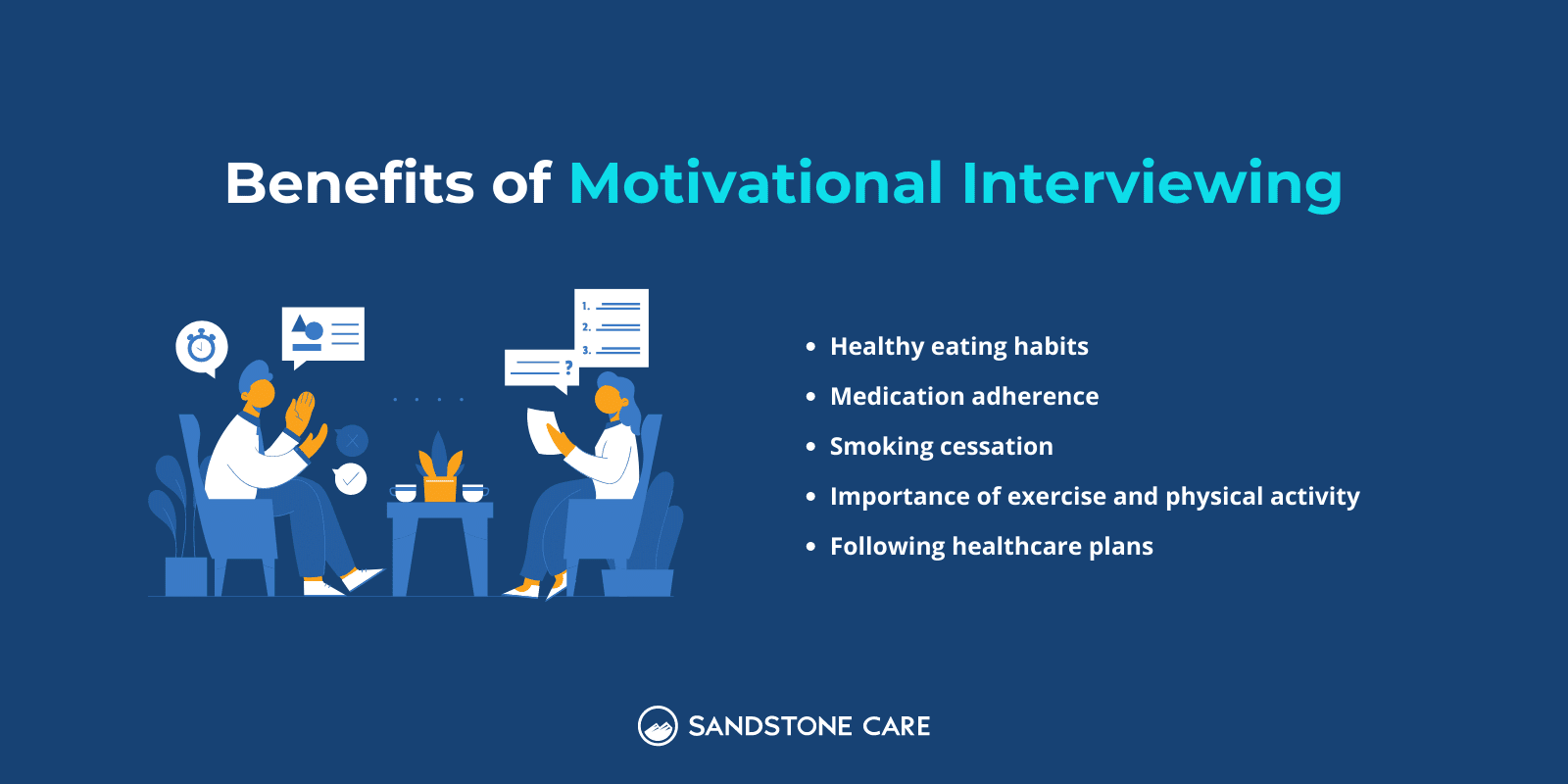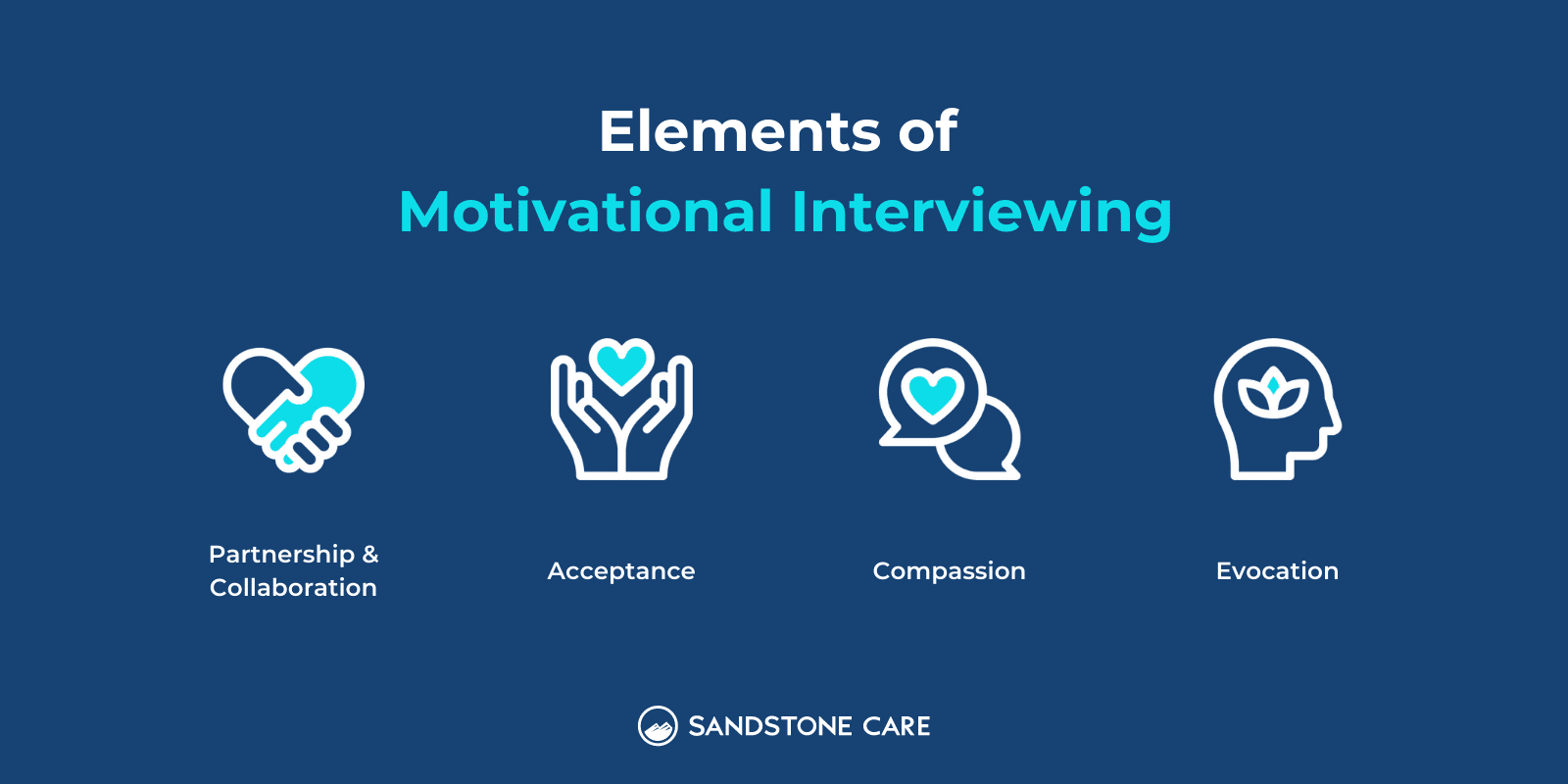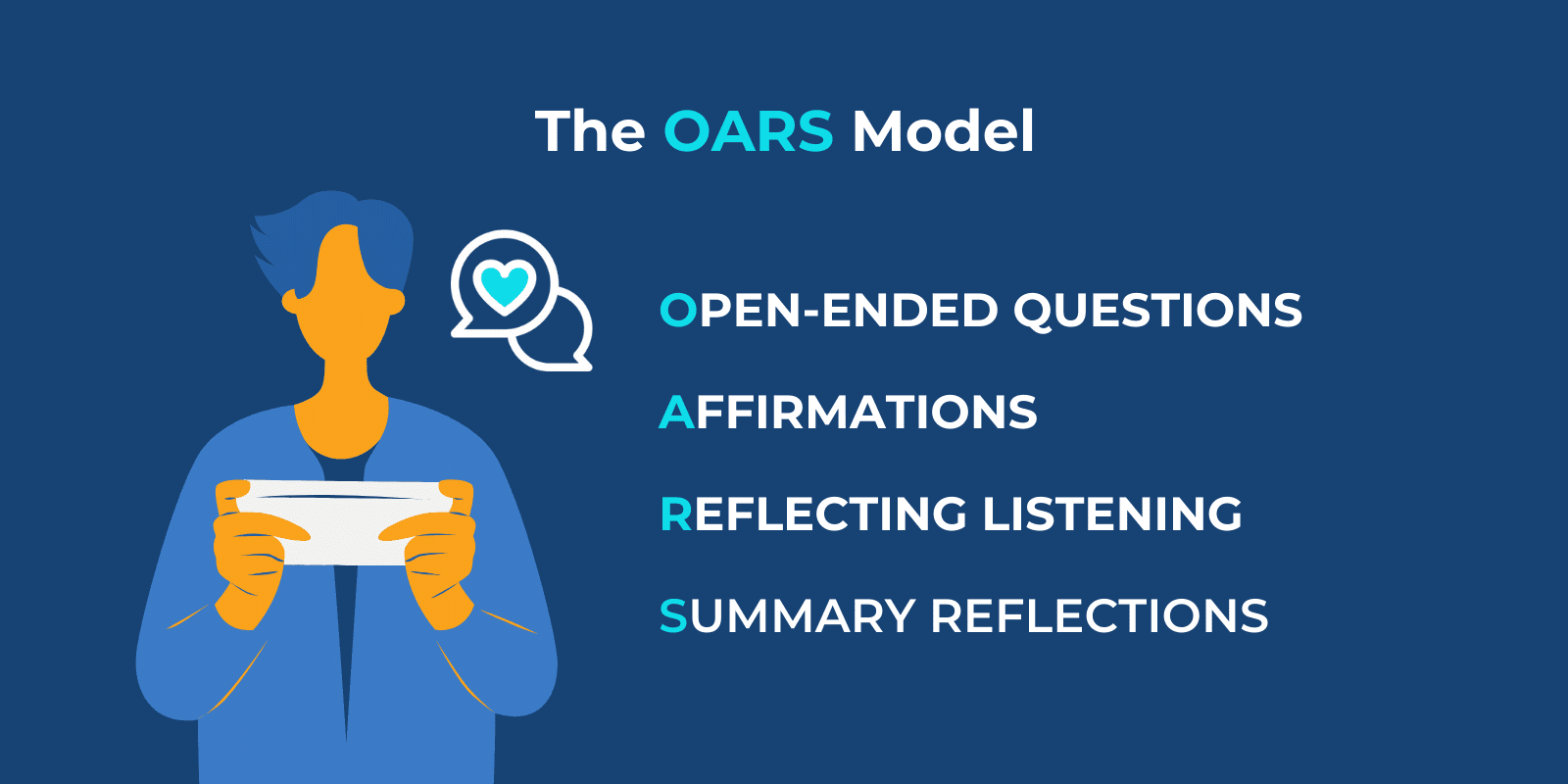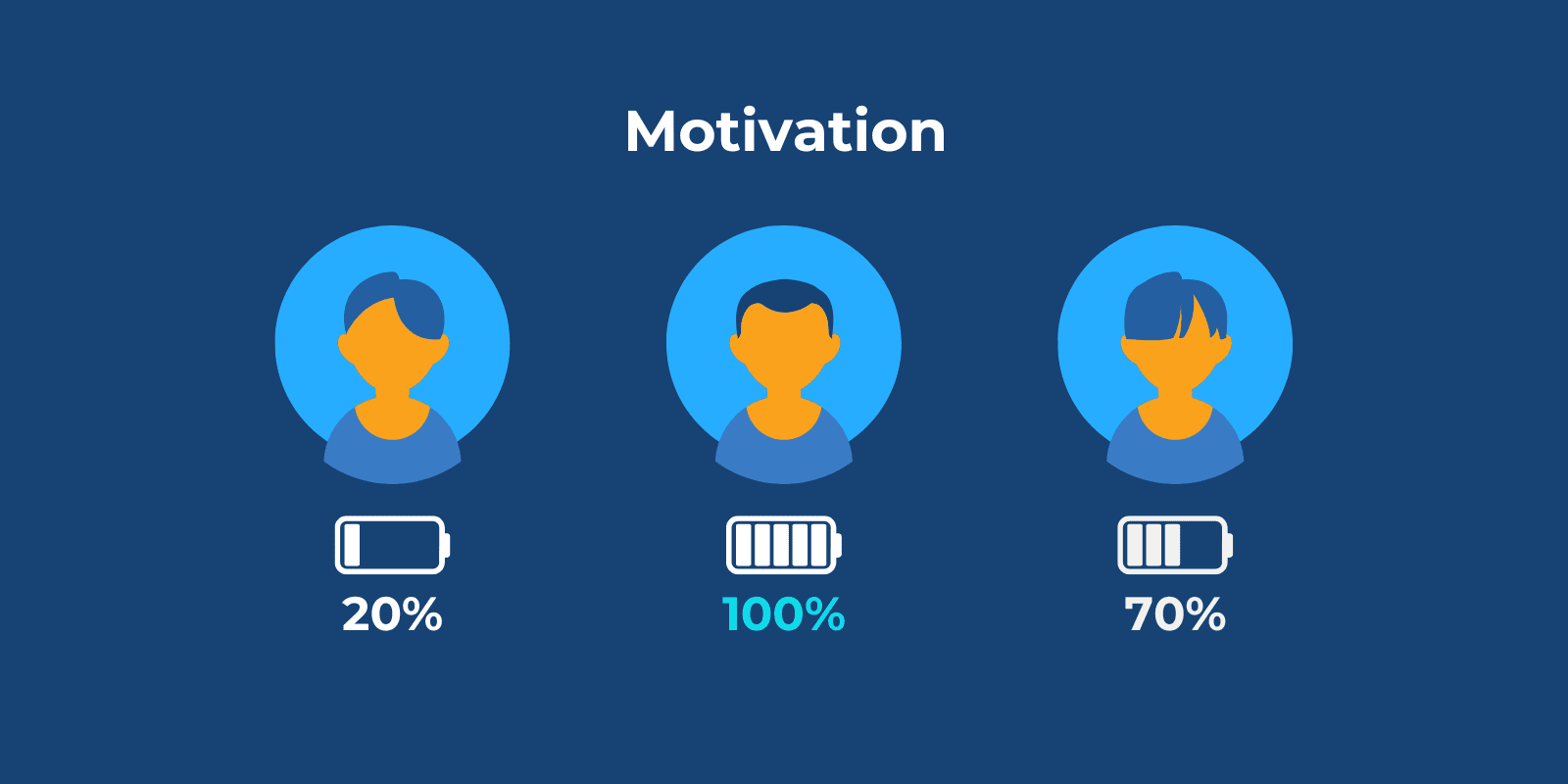What Is Motivational Interviewing?: 11 Things You Need To Know About Motivational Interviewing


“We cannot change, we cannot move away from what we are, until we thoroughly accept what we are. Then change seems to come about almost unnoticed.”
-Carl Rogers, American Psychologist and Pioneer of Client-Centered Therapy
According to the American Journal of Nursing, “Motivational interviewing is an evidence-based counseling approach that health care providers can use to help patients adhere to treatment recommendations.”
Motivational interviewing (MI) was developed by Stephen Rollnick and William R. Miller to help clients find their own motivation for making changes. MI is considered a client-centered approach to psychotherapy and is used in the field of clinical psychology.
During MI, your therapist guides you through an interview process to help you find your own reasons to make behavior changes. The goal of MI is to help people change through their own motivations.
MI is best if you or a loved one struggle to make changes in your life. You might be “going through the motions” of psychotherapy, yet nothing is “sticking.” Often, when you feel like others are telling you to make changes, you might not be compliant in therapy.
Motivational interviewing is used to help clients with things like:
In addition, during substance abuse treatment, you might use “motivational enhancement therapy” (MET). MET uses the principles of motivational interviewing to help you rapidly advance through the stages of change.
The National Institute on Drug Abuse (NIDA) defines MET as “a counseling approach that helps individuals resolve their ambivalence about engaging in treatment and stopping their drug use.”
The goal of MI (and MET) is to help you find your own reasons to continue in treatment. MI is more of an intervention than an ongoing therapy. You can resolve any ambivalent feelings that you have about the process of change during treatment.

Resolving feelings of ambivalence is a primary goal in motivational interviewing.
According to the journal Addiction, “Ambivalence represents a client’s experience of simultaneously feeling two ways about changing one’s behavior; for example, concurrently wanting to make a change while also feeling reticent to do so.”
When confronted with the need to make changes, you might resist at first.
For example, when you begin treatment for substance use disorder, you might deny that you need to make a change. You might go to substance abuse treatment because of a court order or at the insistence of family members.
When your motivation to make change comes from others, you might feel “forced” into treatment. You might not agree with the need for treatment or even believe that you have an issue.
If you do not resolve your ambivalent feelings about treatment, you might be less open to making real changes. You might be less compliant with taking medications, going to support groups, following through on psychotherapy, and other parts of your treatment plan.
Resolving ambivalence can help you find intrinsic motivation to make behavior changes.
Intrinsic motivation means that you have your own reasons to make changes. When your inspiration comes from within, you are more likely to follow through with your therapy and treatment plan.
The basic principles of motivational interviewing are meant to help you discover intrinsic motivation for change.
Your counselor will help you through MI by adhering to these principles during your counseling sessions. These principles guide you through the process of change with your mental health clinician.
The basic principles of MI for clinicians to use are to:
These principles direct the client-centered counseling style of MI. Instead of telling you what you need to do or that you need to change, your counselor will listen to your concerns about making changes.
You might be upset or even angry about being in treatment. During MI, your counselor will hear you out and offer empathy. They will listen while helping you express your strengths and positive qualities.
In addition, your counselor will follow what is known as the “spirit of motivational interviewing.” Miller and Rollnick outlined the spirit of MI in their book Motivational Interviewing: Helping People Change (published by Guilford Press, New York, NY).
The Substance Abuse and Mental Health Services Administration (SAMHSA) explains in Enhancing Motivation for Change in Substance Use Disorder that the spirit of motivational interviewing is made of these elements:
Change, even for the better, is challenging.
MI counselors empathize with the concept that change is hard. Whether you are making changes for your physical wellbeing, relationships, or mental health, making any change takes work and time.
During MI, your counselor will be your ally and show you that you have the power to make changes to enhance your life.

The motivational interviewing approach goes through progressive stages to help you find intrinsic motivation.
MI can be combined with other types of cognitive psychotherapy. For example, you might have sessions focused on cognitive behavioral therapy (CBT). If you stall in your CBT work due to ambivalence, MI can help you get back to making changes.
Your counselor will follow the basic principles of MI and the four concepts of MI. These concepts will help you resolve ambivalence and begin engaging in “change talk.” Once you find your own motivation to change, you will make huge leaps during treatment.

Motivational interviewing follows four concepts known as the OARS model:

‘Change talk’ is a crucial element in motivational interviewing.
MI can help you get to the point of recognizing the need for change. Your therapist’s role in MI is evoking change talk during your sessions. When you are talking about your reasons for change during your sessions, then you are on your way to finding intrinsic motivation.
When you start MI, you might resist your treatment. Most of your conversations might revolve around why you don’t want to be in therapy. You might feel like no one hears you when you say that there isn’t a problem.
By listening to your reasons for resisting change without trying to correct you, your counselor validates your concerns. You might have concerns about treatment or a fear of change in general. Your concerns need to be heard before you can move forward.
Change and growth begin with acceptance of where you are right now.
Before moving forward, you need to acknowledge where you are. Often, clients might be resistant to change to avoid responsibility for their behaviors. Entering treatment means accepting that your actions might have hurt yourself or others.
When you feel heard, you can start to own your treatment. When your therapist helps you make an evocation of change, you are ready to make fundamental changes in your life. Change talk means that your therapy shifts from resistance to preparing to take action.

The following are examples of motivational interviewing questions:
Open-ended questions like these are great at evoking thoughtful responses during your therapy sessions. Your counselor will work toward facilitating the conversation, but you will be leading the discussion during your sessions.
Following open-ended questions, your counselor will verify what you are saying. They might ask clarifying questions, like “So, you felt like your parents didn’t accept your choices?” or “It sounds like you struggle to connect with others, is that correct?”
Your counselor will help you identify your strengths and desires for making changes in your life. Many clients fail to recognize the power that they have to make positive changes in their lives.
Your therapist will help you find reasons for change to help you through the early stages of change by asking open-ended questions.

Motivational interviewing is good for helping you through the early stages of change.
The early stages of change are when you might encounter the most resistance. When you first enter mental health or substance abuse treatment, you might feel like you do not need any help or realize that you have a problem.
The goals of MI are to help you resolve ambivalent feelings of treatment, discover intrinsic motivation and move forward when you “plateau” during treatment.
MI is great for helping you through the stages of change or getting you back on track if you relapse.

Prochaska and DiClemente identified five stages of change that you might go through before and during treatment:
MI is helpful for those in the early stages of treatment who are not committed to the process of change. You can also use MI to get back into treatment following a relapse if your relapse causes doubts about your ability to stay well.
Additionally, in the maintenance stage, you might become complacent in your recovery. You might do well for a long time, then feel like you are “going through the motions.” MI can help you reconnect with your own motivations to stick to your continued recovery.

Motivational interviewing should not be used if you are committed to your treatment process.
If you are in the action stage of change, you might not need the counseling approach of MI. MI is most helpful for those who do not feel like they need help, those who need help but don’t know why, or when you struggle with compliance for treatment.
The effectiveness of motivational interviewing is best during the initial stages of mental health or substance abuse treatment. MI might not be necessary when you follow through with your plan, make progress, and move forward on your own.

The benefits of motivational interviewing include:
If you or a loved one struggle to understand why they are in treatment, motivational interviewing can help them take action or supplement other types of therapy.
You might feel like your treatment plan is going in the wrong direction or deny a problem in the first place. When you make your own choices in treatment, you will feel more empowered to continue your recovery journey.
Motivational interviewing can help you take ownership of your treatment when you struggle to find your own motivation to make changes. Sandstone Care is here to support teens and young adults with mental health and substance use disorders. Call (888) 850-1890.